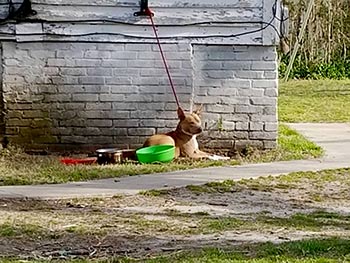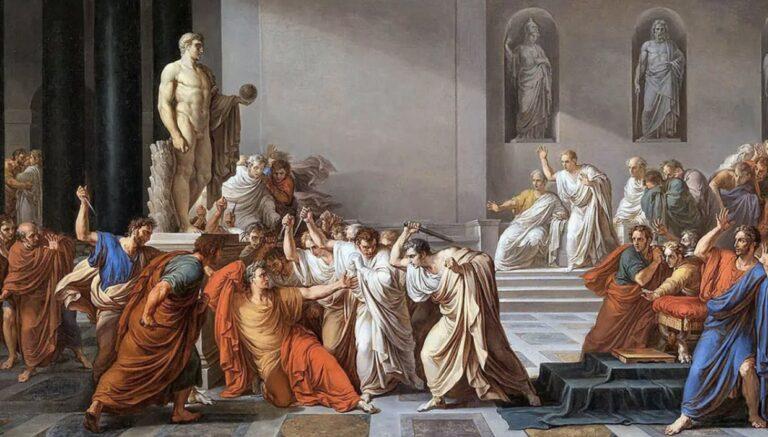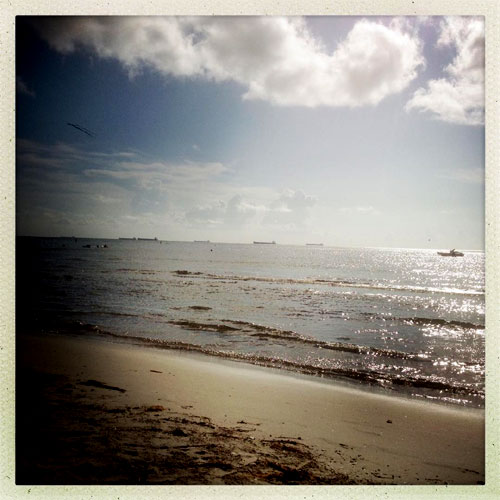814 A.D.: Death of Charlemagne first to hold the title of Holy Roman Emperor. His conquest and rule over a continuous empire covering most of central and western Europe created, for the first time in the post-Roman era, the political conditions for what we now know as “Europe,” an entity, rather than the plethora of tribes and anarchy that followed the collapse of Roman rule.
1225: Birth of Thomas Aquinas (d.1274), who began his career as an Italian monk, but whose force of intellect and spiritual insights catapulted him to
1547: Death of the mercurial King Henry VIII (b.1491), leaving in his wake the
1627: Birth of Irish chemist Robert Boyle (d.1691). If you’ve ever had to pop your ears or burp in an airplane, it’s because of him. QUIZ! Why is it his fault? (Yes, you old-timers, you’ve seen this question before (be patient with me)).
1646: After a tumultuous reign that saw two vicious civil wars fought between his royalist army and armies of an increasingly assertive Parliament, King Charles I is beheaded for high treason. General Oliver Cromwell assumes a role as Lord Protector of the Realm.
1661: As part of the settlement leading to the restoration of the British monarchy, the two-years dead remains of Oliver Cromwell are exhumed and ritually executed for regicide, 12 years to the day from Charles I’s beheading at Cromwell’s instigation. After the ceremony, the mutilated corpse was tossed into a common pit grave, and his head was displayed on a pike outside Westminster until 1685. It changed hands several times
1759: Birth of Scottish poet laureate Robert Burns (d.1796).
1787: In the final battle of what today is an obscure incident, an unauthorized militia aligned with Massachusetts farmer Daniel Shays conduct a short, sharp battle with the legitimate Massachusetts Militia at the Springfield Armory. Four of Shays’ men are killed, twenty are wounded, and the rebels flee north, totally disbanded. Shays’ Rebellion grew out of attempts to collect debts left over from the Revolution. European investors were putting the squeeze on Boston business owners, demanding payment in specie. The businessmen, in
1801: Birth of Horatia Nelson (d.1881), illegitimate daughter from the torrid and shockingly public affair between Royal Navy hero Horatio Lord Nelson and Mrs. Emma Hamilton, wife of the British Consul in Leghorn, Italy.
1813: First publication of Jane Austin’s Pride and Prejudice.
1833: Birth of Charles “Chinese” Gordon (d.1885), one of the great British generals from the heyday of Victorian colonial expansion. He had a long and colorful career, which is reflected in his nickname, to say nothing of all the schools and roads named in his honor. And remember all the Islamist quacking about “the Mahdi” coming back after our invasion of Iraq? Gordon fought the guy himself in Sudan, and was killed by an onslaught of Mahdi forces on the steps of the palace in Khartoum.
1850: The Kentucky senator Henry Clay introduces on the floor of the U.S. Senate The Compromise of 1850, a complicated set of bills designed to diffuse the increasingly volatile issue of slavery in the new territories of the United States. The proximate trigger was the end of the Mexican War, which brought with it a huge acquisition of territory from the Mexican Cession, the status of which could not be adequately defined by the Missouri Compromise of 1820 (which set the slave-free line in the territories at N36-30). The 1850 plan was this: a) California is admitted as a free state; b) Texas is admitted as a slave state; c) Texas drops its claims for territories in New Mexico in exchange for Federal assumption of Lone Star debt (hmm- plus ca change, as they say); d) New Mexico and Utah territories are organized to permit popular sovereignty to decide slave or free status; e) the importation and sale of slaves is prohibited in the District of Columbia, although slave labor there remains legal; f) the Fugitive Slave Act is strengthened. The final portions of the Compromise passed in
1853: Birth of Jose Marti (d.1895). Remember Radio Marti, the Miami station that broadcast actual news and information a la Voice of America during the Reagan Administration? It was named after this Cuban nationalist who was unrelenting in working to extract Cuba from Spain’s sclerotic colonial rule.
1862: Launch of USS Monitor at the Brooklyn Navy yard in New York. We’ll be seeing more about her operational history in March, but a little-remarked side note in her history was the alacrity with which she was built: 120 days from the contract signature to launch. Granted, designer John Ericsson had the plans already in hand but it is still an amazing feat of
1890: Birth of Robert Stroud (d.1963), convicted of
1912: Birth of American artist Jackson Pollock (d.1956).
1919: The delegates meeting at the Paris Peace Conference in Versailles approve a motion to develop a League of Nations, based on President Wilson’s 14 Points.
1947: Death of Chicago mobster / businessman / politician / Ward Chairman / political mentor… Al Capone (b.1899).
1948: Death of Orville Wright.
1958: Lego Corporation patents its design for locking bricks. Seems to have been a decent design, given the thousands of Legos still in our attack.
1971: In Uganda, Colonel Idi Amin leads a coup d’état against Milton Obote, becoming president of that benighted land.
1986: Space Shuttle Challenger blows up 73 seconds into launch, killing all 7 astronauts aboard.




What a plethora of history you have served us up this week!
As to the hull plates for the Monitor, they were forged just down the road from where I am, at the Burden Iron Works in Troy, New York, which was at that time a “wonder,” if you will, of the industrial world, either here or in Europe.
Henry Burden himself was born in Dunblane, Perthshire, Scotland.
Burden studied engineering at the University of Edinburgh, and returned to the family farm making implements and a water wheel to power them.
In 1819, he emigrated to America with a letter of introduction to Stephen van Rensselaer, of the powerful van Rensselaer patroon family in the Albany.Troy area of New York, courtesy of the American Minister in London.
Burden started his career in this country at the Townsend & Corning Foundry, manufacturers of cast iron plows and other agricultural implements, which was located in Albany’s south end – near today’s Port of Albany.
The next year, he invented an improved plow, which took first premium at three county fairs, and a cultivator, which was said to have been the first to be put into practical operation in the country.
He also made mechanical improvements on threshing machines and grist mills.
In 1822, he moved to Troy and worked as superintendent of the Troy Iron and Nail Factory located on north side of the Wynantskill Creek in South Troy, about a half-mile northeast of today’s Troy-Menands bridge.
Burden’s inventions, which automated work that was previously done by hand, made the factory extremely profitable and Burden soon became the sole owner of the factory and renamed it H. Burden and Sons.
The Burden Iron Works, as it came to be known, produced a variety of iron-based products, as Burden experimented not only in the manufacture of items like horseshoes and spikes, but also in the production of machines to make them.
For example, in May 1825, he secured a patent for a machine to make spikes, which up until then were made by hand, and the Burden Iron Works produced the first ship spikes and the first horseshoes made by machinery in the world.
In 1835 he designed the “Horseshoe Machine” that could produce 60 shoes a minute.
Burden became the chief horseshoe producer for the Union Army.
Burden became involved in supplying the iron needed by the nation’s rapidly expanding railroads.
In 1840 he obtained a patent for the first hook-headed spike.
He made ten tons of these for the Long Island Railroad in 1836.
Also in 1840 he obtained a patent for the “rotary squeezer”, which came to be used in all the leading iron manufactories in both America and Europe.
Burden held twelve patents in total.
He was also among the first to suggest the use of plates for iron-clad seagoing vessels, and sent specimen plates of his own manufacture to Glasgow for testing.
The company forged the hull plates for the USS Monitor, the Navy’s first iron-clad battleship, which engaged the Confederacy’s Merrimac in 1862 in the first battle of its kind.
The Hudson river adjacent to the works was shallow and full of bars, and the land along the river was low and frequently flooded, so Burden had the grounds filled in, and the river dredged, so that the company’s docks were accessible to large vessels, and a network of railroad tracks wove through the property to move train loads of sand, iron ore from the Lake Champlain region, and limestone from the downriver city of Hudson.
Burden originated a system of reservoirs along the Wynantskill Creek to hold the water in reserve and increase the water-supply to power the mills, and those “reservoirs,” now called lakes, exist to this day.
Ironic or otherwise, Henry Burden is an example of America being made great by an immigrant.
I really look forward to reading these little snapshots of History. So Cromwell’s corpse was desecrated. How’s that for karma? Love it. Bravo to this intrepid reporter.
In “The Cousins’ Wars: Religion, Politics, Civil Warfare, And The Triumph Of Anglo-America,” the author, Kevin Phillips, brings up the fact that in Massachusetts, the people there, the Puritans, would have been very much in Cromwell’s Roundhead camp, while here in Virginia, Virginia Cavaliers were royalist supporters in the Royal Colony of Virginia at various times during the era of the English Civil War and Restoration, which is said to be a part of the reason they found themselves on opposite sides during the American Civil War.
Going all the way back to 1624, the Virginia Company, after a severe struggle with the Crown, was deprived of its charter, with the chief cause of this being that the Puritan element, which formed the backbone of the opposition in Parliament, had also gained the ascendency in the Virginia Company, nor did James I like the action of the company a few years before in extending representative government to the colonists, so the result was the loss of the charter, and anyone knowing this history sees the seeds of the American Revolution being born there, long before it was to actually happen.
As a result of losing its charter, Virginia became a royal colony and so it continued until the Revolutionary War, although the change had little effect on the colony, since Charles I, who soon came to the throne, was so occupied with troubles at home that he gave less attention to the government of Virginia than the company had done, and popular government continued to flourish.
Ah, yes, popular government!
The seeds of Revolution in America were thus born, here in Virginia!
Of the six thousand people who had come to Virginia from England before 1625, only one fifth now remained alive, but this number was rapidly augmented by immigration, and when Governor Yeardley died in 1627, John Harvey, a man of little ability or character, became governor, and he kept the Virginians in turmoil for some years, but the colony was now so firmly established that his evil influence did not greatly affect its prosperity.
Then Sir William Berkeley began what would be the longest rule of one man in Virginia’s colonial history, becoming governor of Virginia in 1642 and continuing to hold the office until 1677, with the exception of a few years under the commonwealth.
Berkeley was said to be a rough, outspoken man with much common sense, but with a hot temper and a narrow mind, and he was a Cavalier of the extreme type, and during the first period of his governorship he spent much of his energy in persecuting the Puritans, many of whom found refuge in Maryland.
With respect to Cromwell, about the time Berkeley assumed the office of governor of Virginia, a fierce war broke out in England between the Royalist Cavaliers and the Parliamentarian Roundheads, factions over the governance of England.
The Parliamentarians included many Puritans and over the course of the conflict, Oliver Cromwell, one of the strongest personalities in British history, rose to prominence through his generalship and was a grandee in the New Model Army.
The second civil war started when Charles sought to gain power through an invasion of England by the Scots – the latter promised that Presbyterianism would be imposed on England.
In 1649, following the defeat of the Scottish army and royalist revolts, Charles I was tried, convicted and beheaded by his own subjects.
Although the newer, Puritan colonies, most notably Massachusetts, were dominated by Parliamentarians, the older colonies like Virginia sided with the Crown, so that the Virginia Company’s two settlements, Virginia and Bermuda were conspicuous in their loyalty to the Crown, and as a result were singled out by the Rump Parliament in An Act for prohibiting Trade with the Barbadoes, Virginia, Bermuda and Antego in October, 1650.
That act dictated that due punishment [be] inflicted upon the said Delinquents, do Declare all and every the said persons in Barbada’s, Antego, Bermuda’s and Virginia, that have contrived, abetted, aided or assisted those horrid Rebellions, or have since willingly joyned with them, to be notorious Robbers and Traitors, and such as by the Law of Nations are not to be permitted any maner of Commerce or Traffique with any people whatsoever; and do forbid to all maner of persons, Foreiners, and others, all maner of Commerce, Traffique and Correspondency whatsoever, to be used or held with the said Rebels in the Barbada’s, Bermuda’s, Virginia and Antego, or either of them.
The Act also authorised Parliamentary privateers to act against English vessels trading with the rebellious colonies: All Ships that Trade with the Rebels may be surprized.
Goods and tackle of such ships not to be embezeled, till judgement in the Admiralty.; Two or three of the Officers of every ship to be examined upon oath.
Berkeley, with most of the Virginians, was loyal to the Crown, and he invited the young son of the executed monarch to come to America and become king of Virginia.
But Parliament would suffer no opposition from the colony, and it sent a commission with a fleet to reduce the colony to allegiance.
The Virginians were only mildly royalist and they yielded without a struggle; but they lost nothing by yielding, for the Commonwealth granted them greater freedom in self-government than they had ever before enjoyed under the auspices of the relatively popular Puritan governor, Richard Bennett.
As Wikipedia tells us, as well as basic schoolboy/schoolgirl history books, in two ways the brief period of the commonwealth in England had a marked effect on the history of Virginia, because for the first and only time during the colonial period, Virginia enjoyed absolute self-government.
Not only the assembly, but the governor and council were elective for the time, and the people never forgot this taste of practical independence.
The other respect in which the triumph of the Roundheads in England affected Virginia was that it caused an exodus of Cavaliers from England to the colony, similar to the great Puritan migration to Massachusetts, caused by the triumph of the opposite party twenty years before.
And thus was modern American history born right there, or so I was taught, anyway!
It is interesting to me that we to the north of you look to Virginia for our freedom.